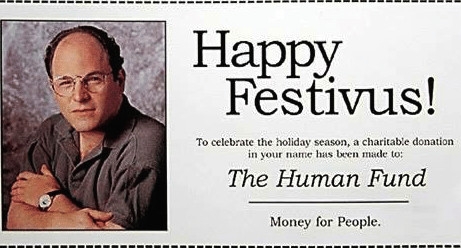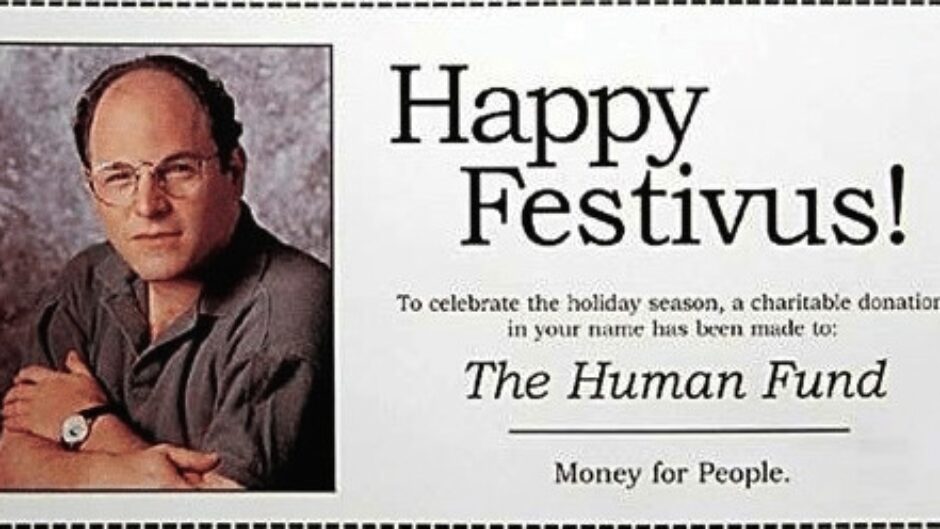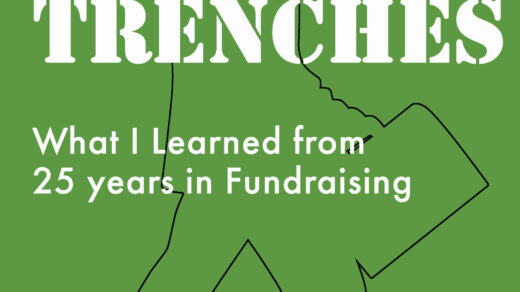
As I was watching Seinfeld one evening over the holidays, I was doubled over in laughter at the Festivus episode. This is probably one of the smartest episodes for a number of reasons. George Costanza has always been my favorite character on the show (definitely had the best lines) and his lack-of-effort in everything he does always proves to be quite effortful. Instead of exchanging Christmas gifts (per normal custom) with his co-workers, George gave cards stating that a donation had been made in his co-workers’ names to a charity called “The Human Fund” (with the slogan “Money For People”). This organization was strictly an invention of George’s that did not in fact exist. Zero accountability — George’s dream!
But what about the donations that do exist?
Donors today want a greater level of accountability and measured impact. As I have shared in previous blogs, many umbrella fundraising organizations are experiencing some real donation shortfalls as donors are choosing to direct their donations more specifically. They want a report of what impact their specific donation has had — and they may even want a relationship with that beneficiary agency.
But what so many charitable organizations fear is being accountable when the news is not-so-good. The instinctive fear that the donors will no longer fund your organization or that they will feel that their investment was unwise is a true concern. But not every project is a slam-dunk. Many projects are colossal failures. But I contend that within each failure is a learning that can shape the next project. Remember as a child playing with Play-Doh? It was originally invented as a wallpaper cleaner. It is rare that a new idea takes off with great success out of the gate. Rather, there are many iterations of the project, ideally with the project getting better and stronger with each iteration.
The key is to keep your donors engaged throughout the journey. Think of it as a road trip. You don’t want to have traveled 3,000 miles to realize that you made a wrong turn at mile marker 100.
We are stewards of donor dollars — ideally, we want the dollars to be invested as wisely as possible. At times, however, we will make mistakes and have outcomes that are not the desired outcomes. This is all good (at the 20,000 ft. level) — it will make your next project that much stronger. I would suggest that you think of the donation as an investment (in future opportunity) rather than an expens(iv)e.
But what about impact? Very few donors these days will write a large cheque and say “do with it as you will”. I would even contend that very few donors will write a modest cheque and say “do with it as you will”. I read about this during my holiday reading of the book “Generation Impact: How Next Gen Donors are Revolutionizing Giving” by Sharna Goldseker & Michael Moody. (See, I’m already being accountable for one of my New Years’ resolutions!) There was a great quote from a younger philanthropist:
There are very few young people I know who write big checks who don’t want some kind of substantial involvement with the organization to which they’re writing that check. I wouldn’t, for example, go into a clothing store and say, “I have $500 to give you; please just hand me $500 worth of clothes.” I guess it’s that simple to me. I don’t feel comfortable going to an organization and saying, “Here’s $500; do whatever you want with it”.
Accountability and Impact go hand-in-hand. It’s hard to have one without the other.
Til next week.
L’chaim
jack




